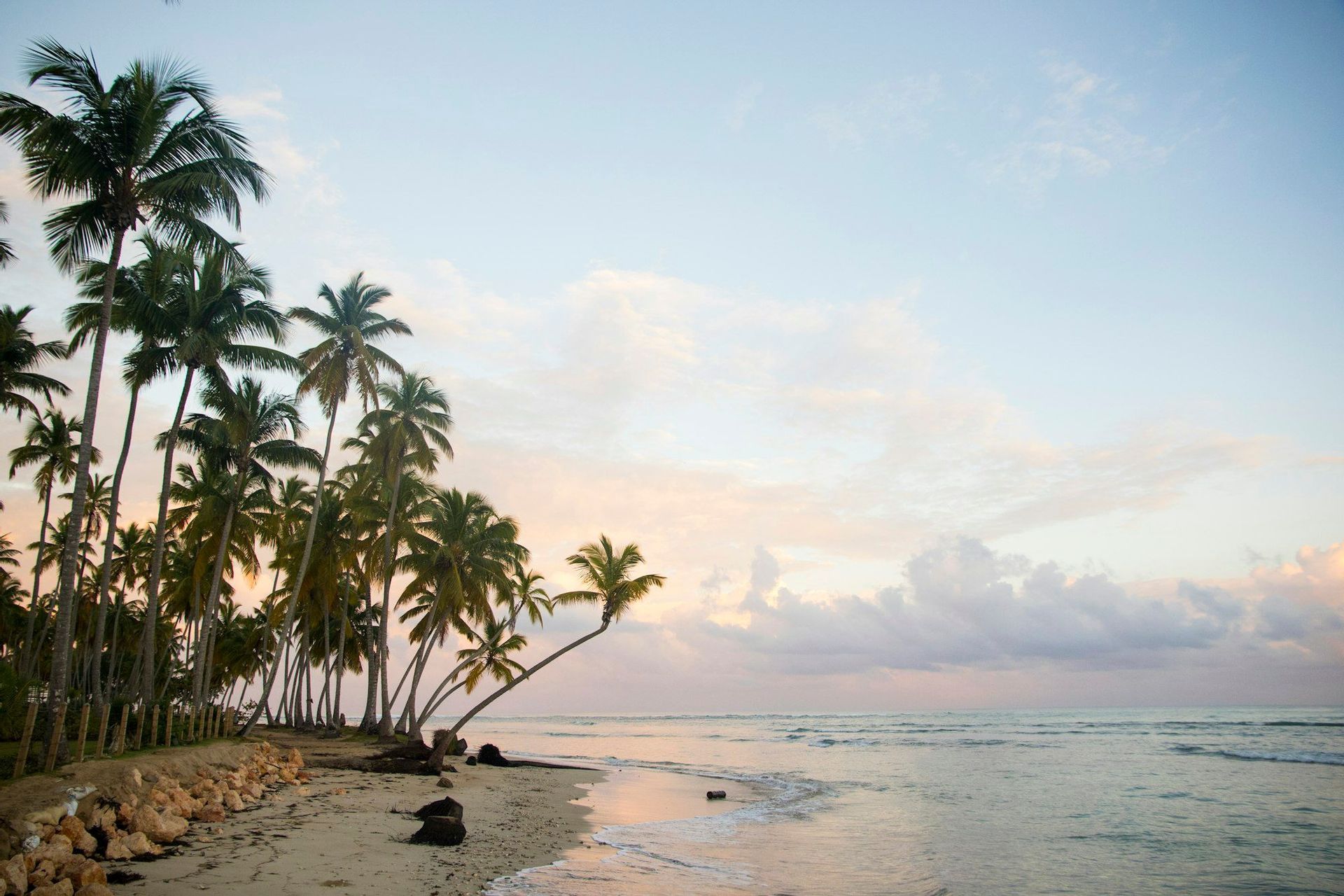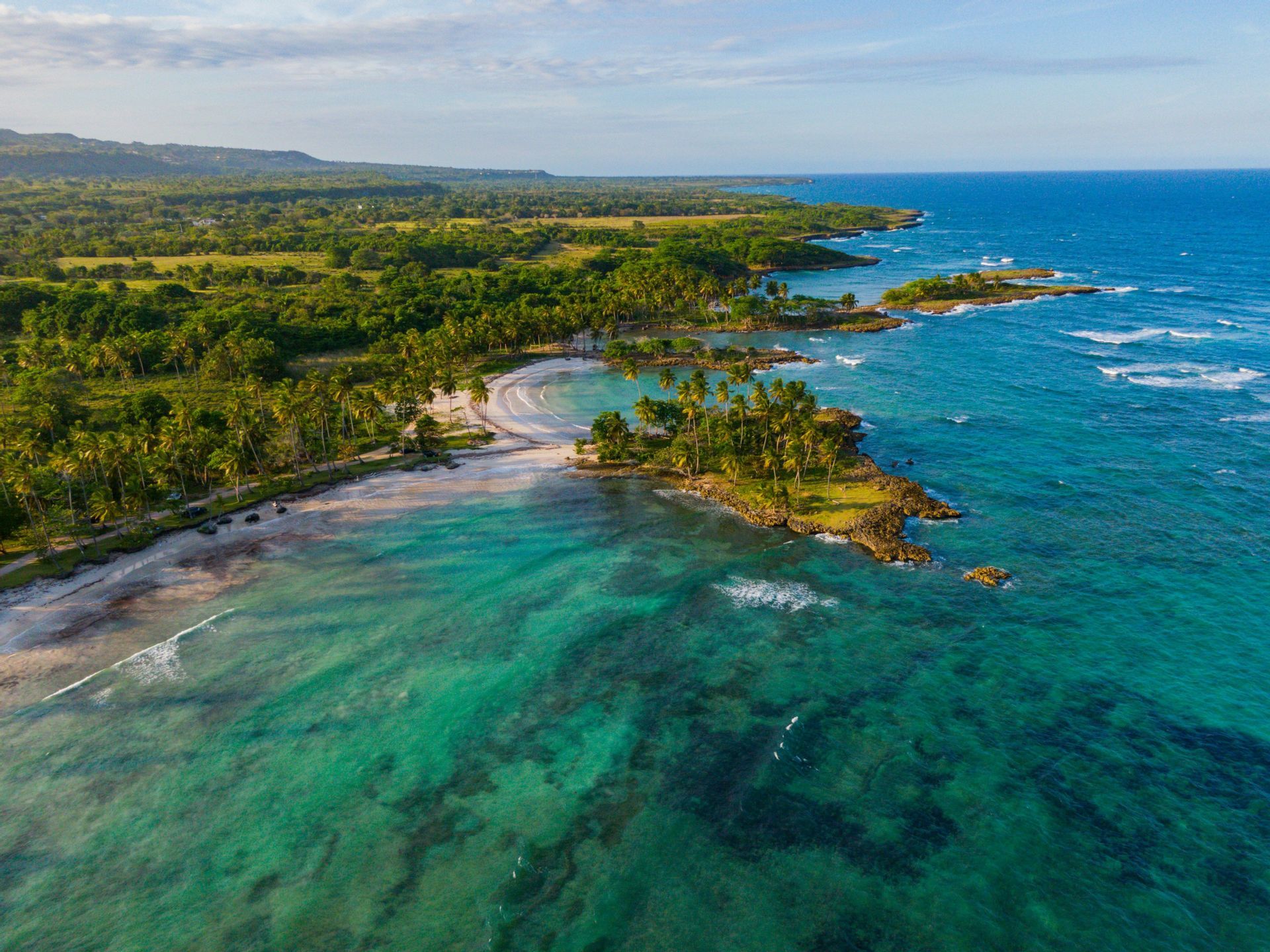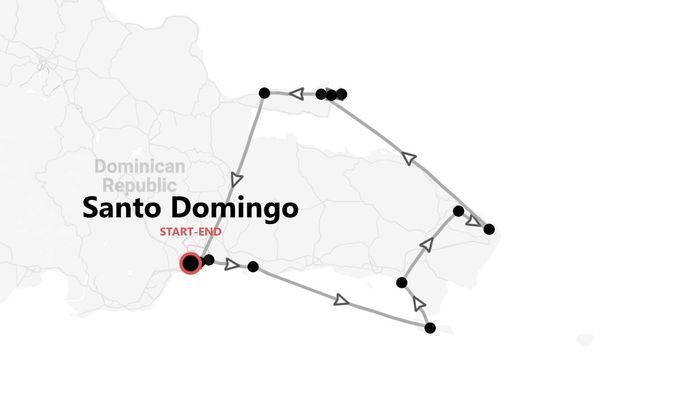
Group trips to the Dominican Republic
Our organized trips to the Dominican Republic
More than just the Caribbean's sun-drenched playground, the Dominican Republic reveals a captivating world of unfolding beauty and vibrant culture. It's a land where rhythmic merengue meets ancient history, and lush tropical landscapes embrace sun-kissed shores. From the cobblestone streets of Santo Domingo's UNESCO-listed Colonial City, the very first European settlement in the Americas, alive with stories and modern-day charm, to the breathtaking natural wonders of the Samana Peninsula, where verdant mountains cascade into turquoise waters, the Dominican Republic welcomes travelers eager for authentic experiences and boundless adventure, ready to immerse themselves in a destination that celebrates life with every beat.
FAQs about Dominican Republic
If you are a UK citizen, to find out the entry requirements for the Dominican Republic, you can check this informational page from our partner Sherpa. If you need a visa, you can apply for it through Sherpa. If you are not a UK citizen, you can still use Sherpa by changing the nationality in the 'Passport' section.
Before traveling, always remember to check the government website of your country of origin for updates on the entry requirements for the Dominican Republic – you wouldn’t want to stay home due to a bureaucratic detail!
- UK residents: review the FCDO Travel Advice.
- US residents: consult the US Department of State Travel Advice.
- Other residents: refer to your government or local consulate's travel advice.
The Dominican Republic is in the Atlantic Standard Time (AST) zone, and they do not observe daylight saving time. If it is 12pm in the UK, it will be 8am in the Dominican Republic. If it is 12pm in New York, it will be 12pm in the Dominican Republic. Keep this in mind when planning your activities or calls.
The currency used in the Dominican Republic is the Dominican Peso (DOP). As of the latest rates:
- 1 GBP is roughly 76 DOP
- 1 USD is about 56 DOP
- 1 EUR is approximately 66 DOP
You can exchange currency at banks, exchange offices, or at your hotel. It's a good idea to compare rates to get the best deal.
Credit cards, especially Visa and Mastercard, are widely accepted in the Dominican Republic, alongside cash in the local currency, the Dominican Peso. It's a good idea to carry some cash for smaller shops and markets where cards might not be accepted. ATMs are common in urban areas, so you can withdraw Dominican Pesos using your credit or debit card. Make sure to notify your bank about your travel plans to avoid any issues with card transactions.
Tipping is appreciated in the Dominican Republic, and it's common to leave a tip for good service. In restaurants, a 10 percent service charge is often included in the bill, but adding an extra 5 to 10 percent is a nice gesture if you received exceptional service. For hotel staff, taxi drivers, and tour guides, small tips are also welcomed to show appreciation for their help. Always check your bill to see if the service charge is included before deciding on the tip amount.
In the Dominican Republic, Wi-Fi is available in most hotels, cafes, and restaurants, but the speed and reliability can vary. For stable internet access on the go, buying a local SIM card or an e-SIM data plan is a great option. Major providers such as Claro, Altice, and Viva offer good coverage and different data packages. This way, you can stay connected throughout your trip without relying solely on Wi-Fi.
In the Dominican Republic, Spanish is the official language. Here are some useful expressions you might hear or use:
- Hello: Hola
- Thank you: Gracias
- Please: Por favor
- How much is it?: ¿Cuánto cuesta?
- Excuse me: Perdón
It can be helpful to know a few basic phrases to enhance your travel experience.
In the Dominican Republic, you'll find plugs of type A and B, similar to those used in the United States. The voltage is 120V, and the frequency is 60Hz. If your devices use a different plug type, we suggest you bring a universal adapter to stay connected.
The main religion in the Dominican Republic is Roman Catholicism. While Catholic traditions and holidays are widely observed, you might also find vibrant celebrations for events like Easter and Christmas. If you're planning to visit during these times, you can expect lively parades and festivals. Keep in mind that while Catholicism is predominant, other religions are practiced and respected, contributing to the island's rich cultural tapestry.
For your trip to the Dominican Republic, you'll want to pack wisely for the tropical climate. Here's a handy list to guide you:
1. Clothing:
- Lightweight t-shirts and tank tops
- Shorts and light skirts
- A swimsuit or two
- A light jacket for cooler evenings
2. Shoes:
- Comfortable sandals
- Flip-flops for the beach
- Sneakers for exploring
3. Accessories and Technology:
- Sunglasses
- A sunhat or cap
- A power bank
- A waterproof phone case
4. Toiletries and Medication:
- Sunscreen with high SPF
- Insect repellent
- Basic first aid kit
- Common travel medication: pain relievers, anti-diarrheal tablets, motion sickness pills
Remember, the Dominican Republic is warm year-round, so focus on lightweight, breathable items.
The weather in the Dominican Republic is generally tropical, with warm temperatures year-round. However, it can vary depending on the region:
- Coastal Areas: Typically warm and humid, with temperatures ranging from 25°C to 30°C (77°F to 86°F).
- Mountainous Regions: Cooler temperatures, especially at night, ranging from 18°C to 24°C (64°F to 75°F).
The best time to visit is during the dry season, from December to April, when the weather is more pleasant and there's less rain. The rainy season is from May to November, with potential hurricanes from June to November.

